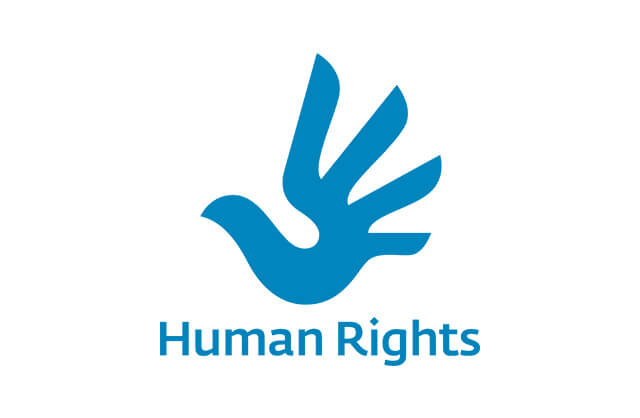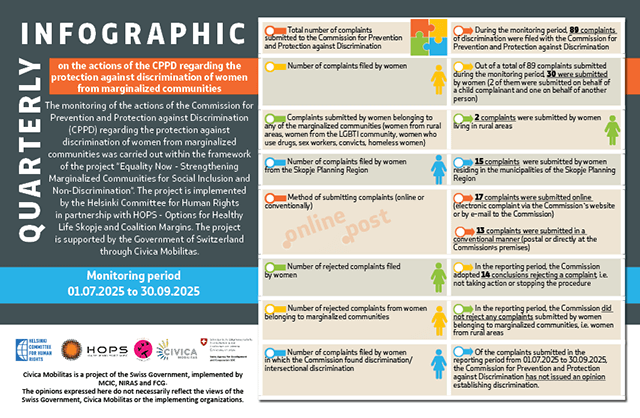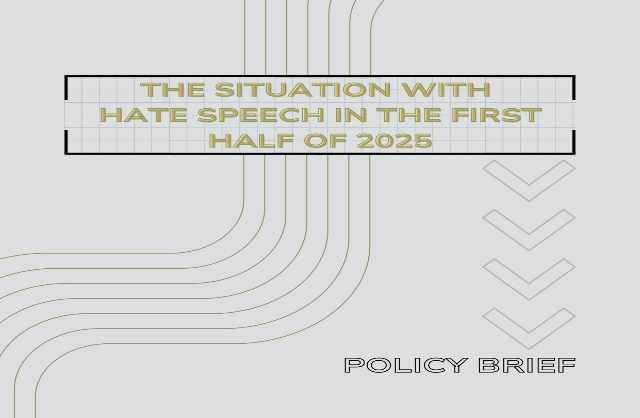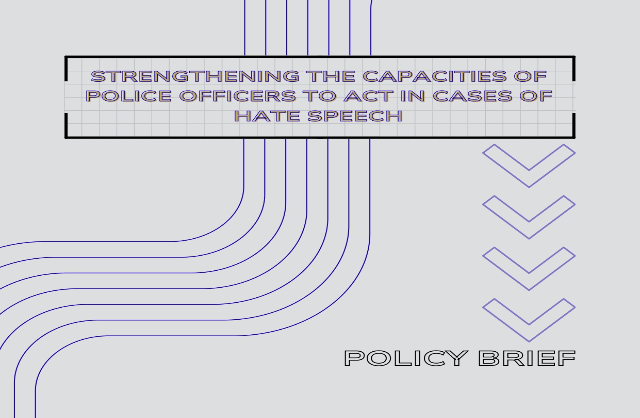Monthly report – March 2016
April 15, 2016

The Monthly report on the human rights conditions in the Republic of Macedonia for March 2016 includes the following topics: Nontransparent actions of the Constitutional Court and counter-protest; the Basic Court should not interfere in the SPP’s autonomy; Report on the SPP’s activities; Harassment and safety endangering by former intimate partner.
The monthly report can be downloaded at the following link.
NONTRANSPARENT ACTIONS OF THE CONSTITUTIONAL COURT AND COUNTER-PROTEST
On 15 March 2016, on the Constitutional Court’s website the announcement regarding its 7th session was amended. According to the announcement, the Constitutional Court allegedly decided that the session would be closed to the public. According to Article 83 of the Rules of Procedure of the Constitutional Court, the Court’s activities are of public character. Article 85 stipulates that the public can be excluded, if that measure is demanded by the interests of safety and county’s defense, keeping state, official of business secret intact, protection of public moral, or other justified cases determined by the Court.
The President of the Constitutional Court provided no ratonale on the reasons why and on the ways how the decision for excluding the public during the aforementioned session had been passed. Considering that the Constitutional Court, i.e. the majority of the Constitutional Court’s judges, is the institution authorized to decide on exclusion of the public, the Helsinki Committee issued a public appeal, asking whether and when a working meeting of judges was held at which it was determined that there were justifiable reasons for closing the session and passing such a nondemocratic decision, or was it perhaps passed arbitrarily by the President, some of the judges, or some of the Court’s employees? Unfortunately, the President of the Constitutional Court failed to respond and answer these questions. We hold that the Constitutional Court must not proceed with the tendency of institutional non-transparency, nor to allow for different definition of public monitoring of and informing on its work. We remind the public that the President of the Constitutional Court in June 2014 passed an oral decision with which she banned the media from making audio-visual recording of the Constitutional Court’s sessions. With today’s decision, the Constitutional Court completely closed itself to the public, which is contrary to the principles of democracy and the rule of law.
The Helsinki Committee’s observers that are present at and around the Constitutional Court’s premises, inform us that hundreds of citizens are gathered there, and that they are signing some lists and receiving sandwiches and drinks. The obvious intent of those citizens is to prevent or hinder the officially reported and scheduled peaceful public gathering in front of the Constitutional Court’s premises, which is supposed to be held today and tomorrow. The Helsinki Committee underlines that such kind of counter-protest at the aforementioned location and at this particular time period is unacceptable, and if carried out in practice, the participating citizens would risk committing the criminal offence Preventing or Hindering a Public Gathering, as stipulated in Article 155 of the Criminal Code. The sanction envisaged for this offence is a fine, or imprisonment of up to one year.
Recommendation: The Constitutional Court must not proceed with the tendency of institutional non-transparency, and should not allow for different definition of public monitoring of and informing on its work.
Recommendation: We invite all citizens, who are either summoned or have on their own accord decided to join the counter-protest, to refrain from such activity, and to express their dissatisfaction at a location different from the one scheduled for todays’ and tomorrow’s public gatherings. We appeal to the political parties to refrain from using hate speech on political or any other basis, and from exploiting the citizens for their political interests and goals.
THE BASIC COURT SHOLD NOT INTERFERE IN THE SPP’s AUTONOMY
On 30 March 2016, the Basic Court Skopje I refused to issue a search warrant following the request submitted by the Special Public Prosecution (SPP), with regard to the so-called “Fortress” (Tvrdina) case, opened against G.G., on account of the allegations that he took part in destroying the wiretapping equipment.[1] According to the pretrial judge,[2] the order for search warrant was not issued due to two reasons: 1) the SPP does not have factual competence to request issuing such an order, on account of its limited factual authority, which pertains only to unlawful interception of all communications in the period from 2008 to 2015; 2) the SPP in its request failed to provide precise description of the items that were to be confiscated.
After the permission was not granted, the pretrial judge asked the Criminal Council to pass its decision as well. The Council assessed[3] that the pretrial judge was right in determining that the search warrant should not have been issued. According to the Criminal Council, there are three reasons for such decision: 1) limited factual competence of the SPP; 2) the SPP’s request is not sufficient to determine the time period to which the content of the unlawful interception of communications is related; 3) SPP’s request is not sufficient to give rise to reasonable suspicion that the criminal offense in question can be derived from the unlawful interception of communications.
First of all, it has to be emphasized that the pretrial judge mixed up the procedures “order for temporary confiscation of items” and “search warrant”. Namely, in order to issue a search warrant, the items that are to be located may, or may not be precisely described. Precise listing of items is necessary only in the case they have all been located, and there is a need for them to be temporarily confiscated. By avoiding this line of argumentation in its decision, the Criminal Council demonstrated that they had obviously realized the pretrial judge’s mistake.
As for the Criminal Council’s argumentation with regard to the SPP’s authority, we wish to underline that in accordance with Article 6 of the Law on SPP, this Prosecution Office enjoys full autonomy with regard to investigation and prosecution of criminal offenses connected with the unlawful wiretapping. Hence, we hold that the Criminal Council’s argumentation on this issue is legally unfounded, because Article 17 of the CCP, which the Criminal Council mistakenly invokes, refers only to the competence of the Prosecution Office as a subject, as opposed to the exemption of civil suit, while neither this, nor any other Article of the CCP does not grant to the Court the right and the possibility to assess and decide which Prosecution Office is competent in this particular case. Therefore, it is rather obvious that the Basic Court Skopje I Skopje has overstepped its authority. On account of all these reasons, it follows that the SPP’s request for issuing search warrant was valid and lawful, while the Basic Court I interfered in the autonomy of the Special Public Prosecution in an unlawful manner.
Recommendation: The Helsinki Committee wishes to encourage all judges to perform their duty autonomously and in accordance with international standards and the national legislation, especially so because of the huge pressure they are subjected to while working on these cases. We hold that only by respecting legal regulations the rule of law would be made possible, and thereby the protection of public interests and human rights would be factually implemented.
REPORT ON THE SPP’s ACTIVITIES
The SPP published the Report[4] on its work for the period from 15.09.2016 to 15.03.2016. The report gives the right impression that, despite the short time period and the repeated obstructions by the rest of the institutions, the SPP managed to emerge as an independent authority in the public prosecution system of RM.
In the part of the Report referring to the administrative-operational activities, the SPP states that fitting conditions for work in the premises allotted by the Ministry of Justice (at Franklin Roosevelt St., no. 34 in Skopje) have still not been secured. As far as the human resources areas is concerned, the SPP reported that, apart from the Public Prosecutors team, a team of investigators was formed as well, and also 3 additional persons were engaged as part-time employees, while 6 persons were employed in the administration service.
In the case work area, the SPP reported that factual jurisdiction has been established over 30 cases, lead against 80 persons. In the part of processing the wiretapped conversations, supplied by SDSM, the SPP reported that the process of registering the materials has been completed, and that a Commission for examining them has been formed.
On 28 March 2016 the SPP held a press-conference at which it informed the public that it has issued an order for initiating investigative procedure on account of inhuman treatment during the arrest of the President of the United for Macedonia party – Ljube Boshkovski, the aggrieved party, effectuated on 06 June 2011. The SPP underlined that such conduct, i.e. torture, is punishable on the basis of all international standards, as well as in accordance to the Criminal Code of the Republic of Macedonia – Article 142 of the CC – Torture and other cruel, inhumane or degrading treatment of punishment. In this specific case there are 7 suspects, part of whom are still employed in the Ministry of Interior. Against all persons employed in the Ministry of Interior the SPP submitted to the Basic Court Skopje I Skopje a proposal for determining precausionary measure – prohibition for undertaking official activities related to the criminal offense in question.
On 30 March 2016, the SPP held a press-conference at which it informed the public that yet another investigation has been opened, regarding a case processed under the name Fortress (Tvrdina). Suspects in this case are five persons employed in various departments of the Administration for Security and Counterintelligence, as well as the Minister of Interior. They are suspected that in the first half of 2015, by misusing their official position and authority and by overstepping the limits of their official authority, premedidately and intentionally destroyed the systems for interception of communications, thereby inflicting on the state and on the Budget of the Republic of Macedonia damage in the amount of 10,000,000.00 EUR, or 615,000,000.00 MKD.
In this case, the SPP issued a search warrant against one of the suspects, a person going under the initials G.G., on which the pretrial judge did not provide consent.[5] After expressing his dissent, the pretrial judge asked the Court’s Criminal Council to pass a decision. The Criminal Council assessed[6] that the pretrial judge rightly determined that the search warrant order should not have been issued, especially because the SPP did not have competence in that particular case.
The Criminal Council’s argumentation in this regard is legally unfounded, because in accordance with Article 6 of the Law on SPP, that Public Prosecution Office has full autonomy in the investigation and prosecution of criminal acts related to the unlawful wiretapping. Hence, it is obvious that the Basic Court Skopje I Skopje has in this case overstepped its jurisdictions.[7]
As for the SPP’s proposal to issue a detention measure against the suspect G.G., the pretrial judge accepted that proposal and issued a detention measure in a duration of 30 days. The defendant defense attorneys filed an appeal against this decision to the Criminal Council, which substituted the detention measure with house arrest measure.
HARRASMENT AND SAFETY ENDANGERING BY FORMER INTIMATE PARTNER
By the end of 2015, the individual H. M. approached the Helsinki Committee for Human Rights, and asked for legal assistance, in the capacity of a victim of harassment and safety endangering by her former intimate partner. Namely, her former partner, wielding a weapon – knife, seriously threatened her that he would encroach upon her life and body, as well as upon the life and body of a person close to her. The victim called the Police, which came to the site, produced an official note, and took a statement of the victim and of a witness, who eye-witnessed the whole incident. Because more than 45 days has elapsed since the aforementioned incident was reported, the aggrieved party went to the SIA Skopje-Center to ask for information on the actions undertaken with regard to the case. At the SIA Skopje-Center she was orally informed that the case had been closed as grievance, while the suspect was summoned to the Police and forewarned.
Due to the inadequate legal reaction of the police officers, the aggrieved party filed criminal charges to the BPP Skopje on account of the aforementioned incident, and the BPP, on its side, filedcharges with regard to criminal offence of Article 133 of the CC – Threatening with a dangerous instrument during a brawl or a quarrel. After both publicand trial hearing were held, the Basic Court Skopje I Skopje passed a verdict in which the defendant was found guilty of the aforesaid criminal offence, and sentenced him to imprisonment in duration of 4 months.
Although the perpetrator has already been convicted, he keeps on harassing and threatening the aggrieved party, and with such behavior he continually endangers the safety of and disturbs both the victim and her family.
It remains unclear how it is possible that for such an incident, which undoubtedly represents a serious threat to the victim’s life, perpetrated in broad daylight, in the presence of other persons, and with utilization of a knife, the police officers formed a case registered as grievance. The police officers were obliged to produce minutes on receiving complaint in accordance with Articles 280, 281, 282 of the CCP, to undertake appropriate actions, to gather information and evidence, to fill in a criminal charges form, and to submit it to the Basic Public Prosecution. An additional cause of concern is the unprofessional and nonchalant behavior of the law enforcement authorities, especially considering that they have knowledge of the facts that the suspect had already been reported by the victim on account of the same offence, that he has previous effective convictions, as well as of the fact that the suspect was issuing threats against the lives and the bodies of the victim and her present husband, which are recorded in a form of SMS messages and complaints filed to the Police with regard to the listed incidents.
Due to the aforesaid, the aggrieved party on 02 March 2016 filed to the Basic Court Skopje II Skopje a proposal on pronouncing interim measures, pursuant to Article 35 of the Law on Prevention, Protection against, and Precluding Domestic Violence. On 21 March 2016, the Basic Court Skopje II Skopje passed a decision on the interim measures, and thus accepted the victim’s proposal regarding the interim measures of protection. Pursuant to Article 39 of the Law on Prevention, Protection against, and Precluding Domestic Violence, the Court determined that the interim measure of protection should be in effect in duration of one year.
Recommendation: The Helsinki Committee is concerned about the unprofessional and nonchalant behavior of the law enforcement authorities and appeals to the Police to act in accordance with the legal provisions prescribed in the Law on the Police and in the Law on Prevention, Protection against, and Precluding Domestic Violence.
Препорака: Хелсиншкиот Комитет е загрижен за непрофесионалното и лежерно однесување на полициските органи и апелира полицијата да постапува согласно законските одредби пропишани во Законот за полиција и Законот за спречување, превенција и заштита од семејно насилство.
[1]https://www.jonsk.mk/2016/03/30/30-03-2016/
[2]https://www.osskopje1.mk/Novosti.aspx?novost=463
[3]https://www.osskopje1.mk/Novosti.aspx?novost=464
[4] The full report may be read on the official web-site of the Public Prosecution, at the following link:
https://www.jonsk.mk/%D0%B4%D0%BE%D0%BA%D1%83%D0%BC%D0%B5%D0%BD%D1%82%D0%B8/
[5] The full report of the Basic Court Skopje I Skopje on the pretrial judge’s refusal may be read at the following link: https://www.osskopje1.mk/Novosti.aspx?novost=463
[6] The full report of the Basic Court Skopje I Skopje on the Criminal Council’s decision may be read at the following link: https://www.osskopje1.mk/Novosti.aspx?novost=464
[7] The Helsinki Committee’s reaction on the decisions of the Basic Court Skopje I Skopje may be read at the following link: https://www.mhc.org.mk/announcements/388#.VweG5Pl97IU


